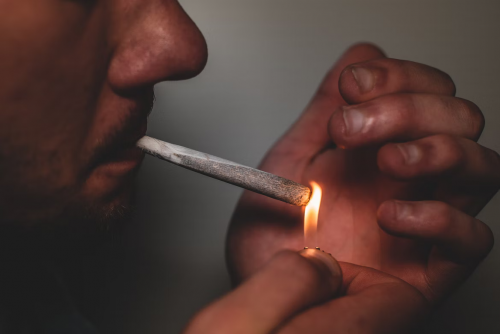You may have asked, “is weed addictive?” and received varied answers. Although some argue the benefits of their consumption, cannabis affects all people differently. According to NIDA, cannabis consumers can develop marijuana use disorder in severe cases. However, your tolerance, dependence, or withdrawal is not enough to make a diagnosis of addiction, so what is?
Is Cannabis Addictive?
Cannabis consumption can become problematic for some consumers. There is a link between frequent marijuana use and physiological dependence, a distinct withdrawal syndrome, and addiction. Cannabis can be addictive because of the potentially positive effects it has on the body and brain; which can also be the case for anything, substances or otherwise, that brings on positive feelings.
Marijuana is often used to help treat depression, pain, stress, and cancer treatment side effects, among other things. For individuals whose consumption doesn’t negatively impact their lives and relationships, you may have a dependence on cannabis but aren’t considered addicted to cannabis.
Addiction can look like many things, but it can feel like a significant physical dependence on cannabis despite adverse effects. Marijuana dependence occurs when the brain adapts to large amounts of the drug by reducing the production of and sensitivity to its own endocannabinoid neurotransmitters. Meaning in order to “function normally,” you feel like you need to use cannabis frequently throughout the day.
Marijuana dependence often develops as you build up a tolerance. Meaning, as you smoke more frequently, you need to use increasing amounts of cannabis to achieve the desired effect. The dependence may affect your body’s ability to respond to dopamine, a neurotransmitter that allows us to feel pleasure. In one study, those who had a dependence on marijuana had higher stress levels, fewer positive emotions, and increased irritability.
In order to lose your tolerance, many online forums suggest taking a two-week break from consuming cannabis. During this time you may experience withdrawal symptoms such as irritability, trouble sleeping, cravings, loss of appetite, and restlessness. However, your tolerance, dependence, or withdrawal is not enough to make a diagnosis of addiction.
Marijuana Use Disorder
According to the National Institute on Substance Abuse, recent data suggests that 30% of those who consume cannabis may have some degree of marijuana use disorder. However, many people with cannabis use disorder do not develop additional substance use disorders. Those that do develop additional substance use disorders may already struggle with abuse of alcohol, cocaine, and opioids, among other drugs.

Photo by Mishal Ibrahim via Unsplash
According to the CDC, there are many ways you can identify if you have an addiction to cannabis.
Firstly, if you use more marijuana than intended, try but fail to quit, and use it even though it causes problems at home, school, or work, you may be addicted to cannabis. Also, if you continue to use it despite social or relationship problems, give up important activities to use cannabis, or use marijuana in high-risk situations, such as while driving a car, you may be addicted to cannabis. And lastly, if you continue using marijuana despite physical or psychological problems, experience withdrawal symptoms, such as aggression and restlessness, when stopping marijuana use, you may have marijuana use disorder.
More Content
THE RELATIONSHIP BETWEEN BACKWOODS AND HIP-HOP
TERPENES FOR ANXIETY: 3 TERPS IN CANNABIS WITH STRESS-RELIEVING PROPERTIES
RAPPER WEED: WHICH RAPPERS HAVE CANNABIS PRODUCTS IN THE MARKET? WHO ACTUALLY HAS THE FIRE?
18 COMPANIES THAT DON’T DRUG TEST THEIR EMPLOYEES FOR WEED
7 TIPS FOR MARKETING CANNABIS AND CBD ON TIKTOK AND INSTAGRAM








